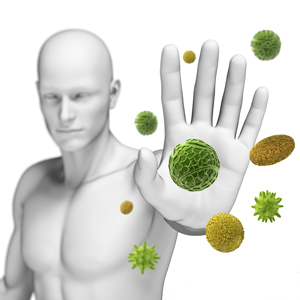 This is a pivotal module on the course; it builds on level 4 foundations and provides the basis for all future modules on the programme. The module aims to provide students with strong underpinning knowledge of the aetiology and pathophysiology of disease to identify coherent physiological mechanisms leading to pathological states and reason for interventions to optimise health.
This is a pivotal module on the course; it builds on level 4 foundations and provides the basis for all future modules on the programme. The module aims to provide students with strong underpinning knowledge of the aetiology and pathophysiology of disease to identify coherent physiological mechanisms leading to pathological states and reason for interventions to optimise health.
- Module Leader: Deborah Archibald
 The aim of this module is to provide students with knowledge of some of the key challenges facing nutrition professionals in the food industry. The module will explore the concepts of food quality and safety with links to health issues beyond acute food poisoning. The module will provide students with knowledge of the legal and regulatory framework for food production and marketing. The module will provide opportunity for students to explore how new developments in health and technology impact on food production and product innovation to offer foods with functional benefits.
The aim of this module is to provide students with knowledge of some of the key challenges facing nutrition professionals in the food industry. The module will explore the concepts of food quality and safety with links to health issues beyond acute food poisoning. The module will provide students with knowledge of the legal and regulatory framework for food production and marketing. The module will provide opportunity for students to explore how new developments in health and technology impact on food production and product innovation to offer foods with functional benefits.
- Module Leader: David Titman
 This module further develops the ideas of critical enquiry introduced at level 4. The aim of the module is to further develop student understanding of the scientific method and the statistical approaches that underpin nutritional and biomedical research, patho-physiological reasoning and evidence based practice. This module also introduces systematic search strategies, critical appraisal forms, and the tools that can be used for the statistical analysis of research data.
This module further develops the ideas of critical enquiry introduced at level 4. The aim of the module is to further develop student understanding of the scientific method and the statistical approaches that underpin nutritional and biomedical research, patho-physiological reasoning and evidence based practice. This module also introduces systematic search strategies, critical appraisal forms, and the tools that can be used for the statistical analysis of research data.
- Module Leader: Indrani Saha
 This module aims to introduce students to major classes of pharmaceutical and nutraceutical agents and their impacts on physiology and pathophysiology. This module will draw on the learning from Applied Pathophysiological Reasoning (CND511) providing students with an opportunity to demonstrate understanding of synergistic action of nutrients and drug/nutrient interactions through the analysis of their mechanisms of action on and physiological processes and pathophysiology. This module will review food law governing nutrition products. The module is designed to support students consider the application of nutraceutical agents at both individual and population levels. Students will develop understanding of safety issues including: upper safe limits, drug nutrient interactions and augmenting effects of nutraceutical agents and know how to check known interactions to support safe nutrition practice.
This module aims to introduce students to major classes of pharmaceutical and nutraceutical agents and their impacts on physiology and pathophysiology. This module will draw on the learning from Applied Pathophysiological Reasoning (CND511) providing students with an opportunity to demonstrate understanding of synergistic action of nutrients and drug/nutrient interactions through the analysis of their mechanisms of action on and physiological processes and pathophysiology. This module will review food law governing nutrition products. The module is designed to support students consider the application of nutraceutical agents at both individual and population levels. Students will develop understanding of safety issues including: upper safe limits, drug nutrient interactions and augmenting effects of nutraceutical agents and know how to check known interactions to support safe nutrition practice.
- Module Leader: Deborah Archibald
 The aim of this module is to help students understand how the nutrition profession has developed from its inception to date. The module will encourage students to explore the roles and influences of legislation, professional and regulatory bodies and politics in the context of nutrition practice. By the time students take this module they will have explored a number of different aspects of nutrition practice; this module enables students to engage 50 hours of online work experience; encourages them to draw on their own experiences and those of their peers; and to identify an area of nutrition practice of personal interest and consider what the future opportunities and challenges may be for that area of nutrition practice. The module aims to introduce students to an expanded range of models of reflection to further develop their reflective skills to help them explore the type of role they may take in nutrition practice.
The aim of this module is to help students understand how the nutrition profession has developed from its inception to date. The module will encourage students to explore the roles and influences of legislation, professional and regulatory bodies and politics in the context of nutrition practice. By the time students take this module they will have explored a number of different aspects of nutrition practice; this module enables students to engage 50 hours of online work experience; encourages them to draw on their own experiences and those of their peers; and to identify an area of nutrition practice of personal interest and consider what the future opportunities and challenges may be for that area of nutrition practice. The module aims to introduce students to an expanded range of models of reflection to further develop their reflective skills to help them explore the type of role they may take in nutrition practice.
- Module Leader: Satu Jackson

